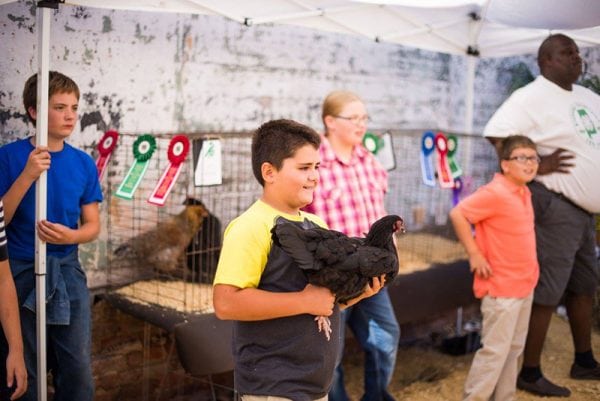Alabama 4-H

The 4-H Chick Chain Project teaches young people recommended management practices for growing and raising chickens. Participation will help youth develop poultry management skills, learn to produce healthy chickens, develop awareness of business management, develop record-keeping skills (income and expenses), contribute to your home food supply, and realize the pride of accomplishment.
Who Can Participate
Any young person age 9 through 18 as of January 1 of the project year can participate. You do not have to be a current 4-H member; however, you will need to complete a 4-H enrollment form if you are not a member.

How It Works
As a participant in the Chick Chain Project, you will receive either 10 or 18 chicks in the spring. The chicks will be pullets (females) that are 1 or 2 days old. All chicks will come from a reputable hatchery and be properly vaccinated. There will be different breeds available; you will choose your chicks from two or three breeds. You will receive 5 or 6 chicks of each breed you have chosen. You will feed and care for these pullets for approximately 20 weeks. At the end of this time, you will bring 2 (if you received 10) or 3 (if you received 18) of your pullets to your county’s 4-H Chick Chain Show and Auction. Proceeds from the auction will go to the 4-H Chick Chain Project.
Participation
Before receiving your chicks, you and a parent will attend a mandatory training session. At this meeting you will receive valuable information to assist you in preparing for and raising your pullets. You also will be given the designated Extension office site and date for acquiring your chicks.
Chick Chain Curriculum Materials
- Download a PDF of Chick Chain Production Manual (English), 4HYD-2044.
- Download a PDF of Chick Chain Production Manual (Spanish), 4HYD-2044.
- Download a PDF of Chick Chain Record Book, 4HYD-2240.
- Download a PDF of Chick Chain Minimum Requirements for Youth, 4HYD-2253.
- Download a PDF of Chick Chain Profit/Loss Scenarios, 4HYD-2251.
For questions about accessibility or to request accommodations, contact Extension Communications and Marketing at 334-844-5696 or extcomm@aces.edu.

